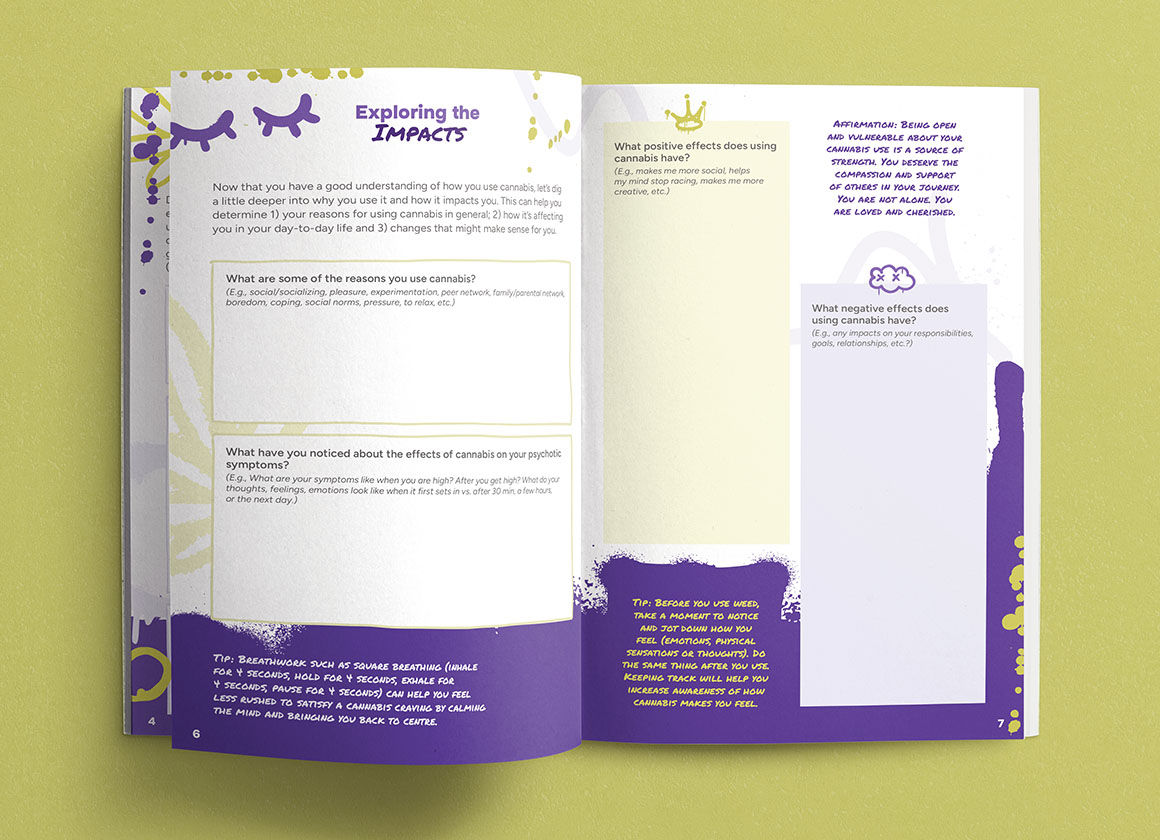In addition to the Lower-Risk Cannabis Use Guidelines for Psychosis (LRCUG-PSYCH), a suite of resources have been developed to support awareness, education and implementation of the LRCUG-PSYCH in community and clinical settings. All tools will be available in both English and French and can be used as online or printed format
Cannabis & Psychosis: Harm reduction posters
- These posters are a resource for clinicians and health professionals. They can be used as an environmental cue that encourages open, non-judgmental conversations between clinicians and their clients about cannabis use.
Cannabis & Psychosis Decision Aid: Reflection Journal.
- This resource is designed to help individual’s at high-risk of psychosis understand and weigh their options in managing their cannabis use. Through a series of reflection exercises, the tool encourages individuals to explore how and why they use cannabis, their unique goals, and determine the best course of action forward in their consumption. It was developed in collaboration with people with lived/living experience of cannabis induced psychosis and is intended to complement clinical care and counselling.
Cannabis & Psychosis: Dialogue Support Tool for Clinicians
- This resource offers clinicians guidance on how to approach conversations about reducing harms of cannabis use with patients who have experienced psychotic episodes and/or have been diagnosed with psychotic disorder(s) including language to support these conversations. It was developed in collaboration with clinicians and people with lived/living experience of cannabis use and psychosis.
Cannabis & Psychosis: Communication Bridges and Roadblocks Infographic
- This resource identifies common communication ‘bridges’ (approaches that can support communication) and ‘roadblocks’ (approaches that can derail or impede communication) in reducing harm of cannabis use in relation to psychosis. It summarizes key strategies to support productive, non-judgmental conversations.

